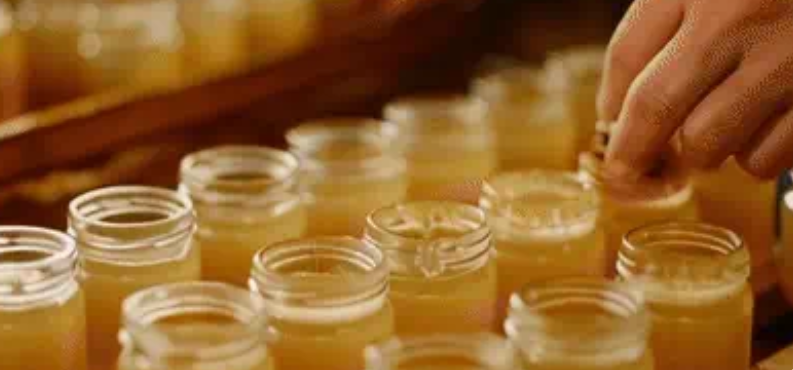In recent years, the concept of sustainable beekeeping has gained significant traction across the globe. Hawaii, with its unique floral diversity and climate, presents a promising locale for this environmentally-conscious practice. This article delves into the significance of sustainable beekeeping in Hawaii, exploring its impact on biodiversity, local ecosystems, and the economy.
Why Sustainable Beekeeping Matters in Hawaii
Hawaii's isolated geographical location and unique ecosystems make it a critical region for biodiversity conservation. Traditional beekeeping methods, when not managed appropriately, can lead to adverse effects such as the spread of diseases, introduction of invasive species, and disruption of local flora. By adopting sustainable beekeeping practices, Hawaii can preserve its rich biodiversity, promote ecological balance, and enhance the resilience of its ecosystems.
The Role of Bees in Hawaii's Ecosystem
Bees play a pivotal role in pollinating native Hawaiian plants, many of which are found nowhere else in the world. This includes species like the Silversword and Hibiscus, which rely on bees for reproduction. By ensuring the health and sustainability of bee populations, Hawaii can maintain the integrity of its unique ecosystems and safeguard its native flora.
Key Principles of Sustainable Beekeeping
To achieve sustainability, Hawaiian beekeepers adhere to several core principles:
- Organic Practices: Utilizing organic materials and avoiding synthetic chemicals to protect bees and their habitats.
- Local Adaptation: Breeding bees that are well adapted to the local climate and flora, thereby enhancing their resilience and productivity.
- Habitat Conservation: Maintaining and restoring natural habitats to support bee populations and other pollinators.
- Education and Community Engagement: Raising awareness and involving local communities in beekeeping practices to foster environmental stewardship.
Challenges and Solutions in Hawaiian Beekeeping
While sustainable beekeeping presents numerous benefits, it is not without its challenges. Hawaiian beekeepers face threats such as:
- Varroa Mite Infestations: These parasitic mites can devastate bee colonies. Sustainable solutions include breeding mite-resistant bee strains and employing natural treatments.
- Climate Change: Fluctuating weather patterns affect flowering times and nectar availability. By planting diverse floral species, beekeepers can provide consistent food sources for bees.
- Invasive Species: Non-native species can outcompete local bees. Maintaining strong and healthy bee colonies is crucial in mitigating these impacts.
The Economic Impact of Sustainable Beekeeping in Hawaii
Sustainable beekeeping not only supports environmental conservation but also offers significant economic benefits. The production of Hawaiian honey, beeswax, and other bee-related products contributes to the local economy. Additionally, pollination services enhance the productivity of agricultural crops, thereby supporting Hawaiian farmers.
Success Stories and Models
Several successful models of sustainable beekeeping have emerged in Hawaii:
- The Hawaiian Honeybee Project: A community-driven initiative focused on breeding resilient bee populations and promoting organic practices.
- Kona Queen Hawaii: Known for their sustainable queen breeding program, they focus on producing high-quality, disease-resistant queens for beekeepers.
- Big Island Beekeepers Association: By organizing workshops and educational events, they aim to increase awareness and participation in sustainable beekeeping practices.
How You Can Support Sustainable Beekeeping
Supporting sustainable beekeeping in Hawaii is easier than you might think. Here are some steps you can take:
- Purchase Local Honey: Choose honey labeled as organic and locally produced to support sustainable practices.
- Plant Native Flowers: Cultivate a garden with native Hawaiian plants to provide bees with pollen and nectar.
- Educate and Advocate: Spread awareness about the importance of bees and sustainable practices within your community.
- Volunteer with Local Beekeepers: Offer your time and skills to local beekeeping projects and initiatives.
Conclusion: A Call to Action
Sustainable beekeeping in Hawaii is more than just an environmental initiative; it's a movement towards ecological harmony and economic vitality. By prioritizing practices that protect bees and their habitats, Hawaii can preserve its unique biodiversity for generations to come. Join the cause today by supporting local beekeepers, advocating for sustainable practices, and fostering a bee-friendly environment.
Start buzzing into action now! Visit local bee farms, attend beekeeping workshops, and become a part of Hawaii's thriving beekeeping community. Together, we can ensure a sustainable future for Hawaii's bees and the ecosystems they support.
